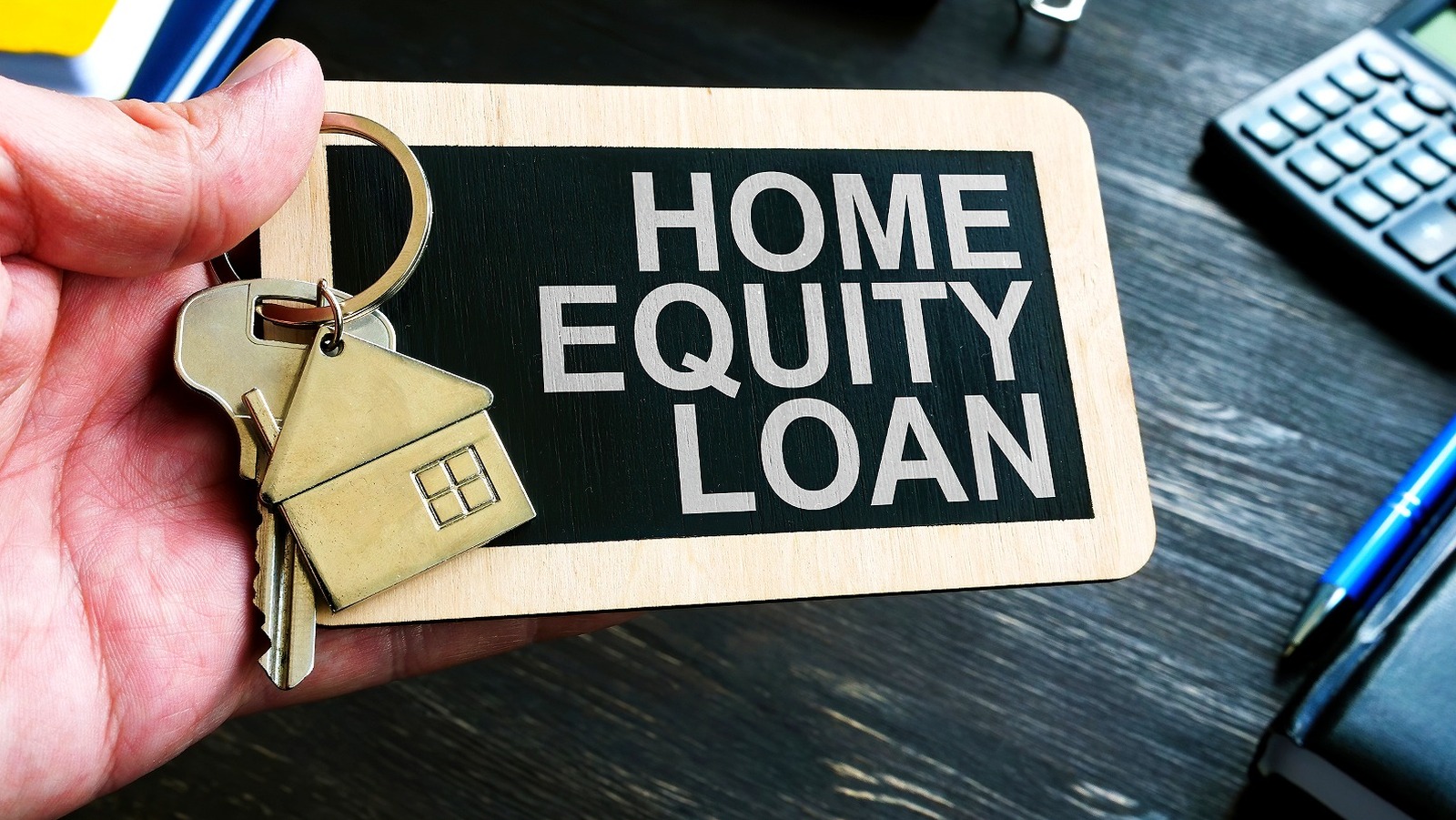Widespread Misconceptions and Truths About Equity Release Mortgages
Widespread Misconceptions and Truths About Equity Release Mortgages
Blog Article
Exploring the Different Kinds of Equity Release Mortgages Available Today
Equity Release mortgages present numerous choices for property owners aged 55 and over. equity release mortgages. These economic products provide to different demands and choices, allowing people to gain access to funds from their building. From lifetime mortgages to common appreciation home mortgages, each type provides distinctive advantages. Understanding these choices is vital for making notified choices. What elements should one take into consideration when choosing one of the most suitable equity Release plan? The information that follow might shed light on this crucial subject
Comprehending Equity Release Mortgages
Equity Release home mortgages provide homeowners, normally those aged 55 and over, with a means to access the worth bound in their residential or commercial property without needing to market it. This economic choice permits individuals to convert a portion of their home equity right into cash, which can be used for different objectives, such as home improvements, settling debts, or funding retirement.Equity Release can take various kinds, however it basically entails borrowing against the worth of the home while keeping ownership. Property owners can select to obtain a round figure or a series of smaller payments, relying on their financial needs and preferences.Additionally, the amount offered for Release is affected by the home's worth, the homeowner's age, and particular loan provider standards. On the whole, comprehending equity Release home mortgages is essential for property owners to make educated decisions concerning using their home's equity while thinking about the long-lasting ramifications.
Lifetime Mortgages
Life time home mortgages represent among one of the most preferred kinds of equity Release. This financial product permits homeowners, generally aged 55 or older, to borrow against the worth of their building while retaining ownership. The financing, which is secured against the home, accrues interest over time yet does not call for month-to-month settlements. Rather, the funding and accumulated interest are repaid when the house owner passes away or relocates right into long-term care.Lifetime home loans provide flexibility, as borrowers can pick to get a round figure or select a drawdown facility, accessing funds as required. Significantly, numerous plans come with a no-negative-equity warranty, making sure that borrowers will certainly never ever owe greater than the value of their home. This attribute supplies satisfaction, permitting individuals to enjoy their retired life without the concern of depleting their estate. On the whole, lifetime home mortgages act as a practical option for those looking for financial assistance in later life.
Home Reversion Program
:max_bytes(150000):strip_icc()/home-equity-loans-315556_final3-23fa1237c577475f811fe9fc06eedec2.png)
Drawdown Life Time Mortgages
While numerous home owners seek means to access their riches, drawdown life time home loans offer a versatile alternative that enables people to Release funds progressively. This kind of equity Release home loan makes it possible for house owners to borrow against the value of their home while preserving ownership. Unlike typical lifetime home loans, drawdown strategies allow debtors to access a portion of their equity upfront and withdraw added funds as needed, as much as a fixed limit.This function can be specifically advantageous for those who want to manage their finances thoroughly, as it minimizes passion buildup by just billing passion on the quantities drawn. In addition, drawdown lifetime mortgages typically include a "no negative equity guarantee," ensuring that customers will certainly never ever owe greater than their home's worth. This option matches retirees that want financial safety and security and adaptability, allowing them to fulfill unanticipated expenditures or preserve their way of life without having to offer their residential or commercial property.
Boosted Life Time Mortgages
Improved Lifetime Home mortgages supply unique benefits for qualified home owners seeking to Release equity from their homes. Comprehending the eligibility requirements is crucial, as it establishes who can benefit from these specialized finances. It is likewise vital to examine the prospective drawbacks linked with improved alternatives, ensuring a well-shaped viewpoint on their use.
Eligibility Criteria Described
Recognizing the eligibility standards for Improved Life time Mortgages is crucial for potential candidates looking for to access the equity in their homes. Commonly, applicants need to be aged 55 or older, as this age need is conventional in the equity Release market. Homeowners should possess a property valued at a minimum threshold, which can vary by loan provider. Importantly, the home has to be their primary residence and in great problem. Lenders frequently assess the home owner's wellness status, as particular health conditions may enhance qualification and benefits. Additionally, candidates should not have existing substantial debts protected against the property. Fulfilling these standards permits individuals to discover Enhanced Lifetime Home mortgages as a feasible option for accessing funds bound in their homes.
Benefits of Enhanced Home Mortgages
After clarifying the qualification standards, it comes to be apparent that Boosted Lifetime Home mortgages offer several significant advantages for homeowners wanting to leverage their building equity. Largely, they provide access to a larger funding amount contrasted to typical lifetime mortgages, benefiting those with health problems or age-related aspects that increase their life span danger. This enhanced borrowing ability allows homeowners to meet numerous economic needs, such as home improvements or retired life expenses. Additionally, these home mortgages typically feature flexible settlement options, enabling borrowers to handle their finances better. The no-negative-equity assurance better assures that homeowners will certainly never ever owe more than their residential property's value, supplying comfort. In General, Boosted Lifetime Home loans offer an engaging choice for qualified house owners seeking economic services.
Prospective Drawbacks Taken Into Consideration
While Improved Life time Mortgages use various benefits, possible drawbacks call for mindful factor to consider. One considerable concern is the influence on inheritance; the equity launched minimizes the value of the estate delegated beneficiaries. In addition, these home mortgages can accrue significant rate of interest with time, leading to a significant debt that may exceed the initial finance amount. There might likewise be constraints on residential or commercial property modifications or rental, limiting property owners' flexibility. Boosted items commonly require details health and wellness problems, implying not all property owners will certainly certify. Managing the charges and charges linked with these mortgages can be complicated, possibly leading to unanticipated expenses. As an outcome, individuals must completely assess their circumstance and seek advice from economic experts before continuing.
Shared Appreciation Home Loans
Shared Admiration Home loans represent an unique economic setup that allows home owners to accessibility equity while sharing future property worth click here for info raises with the lending institution. This strategy supplies possible benefits such as lowered regular monthly payments, however it also features downsides that should be thoroughly taken into consideration. Understanding the eligibility needs is important for those interested in this choice.
Idea Overview
Equity Release home mortgages, especially in the type of common admiration mortgages, supply property owners an unique financial option that enables them to gain access to funds by leveraging the worth of their building. In this setup, a lender gives a loan to the home owner, which is commonly settled through a share of the residential or commercial property's future gratitude in value. This implies that when the house owner markets the property or passes away, the lending institution obtains a portion of the boosted worth, as opposed to simply the first financing amount. Shared appreciation home loans can be appealing for those seeking to supplement their revenue or financing considerable costs while preserving ownership of their home. However, the economic effects of common gratitude should be meticulously thought about by prospective debtors.
Drawbacks and benefits
Shared gratitude home mortgages can provide substantial economic advantages, they also come with remarkable drawbacks that potential debtors must take into consideration. These home loans allow house owners to accessibility equity in their homes while sharing a section of any type of future appreciation with the loan provider. This setup can be valuable during times of rising property values, offering substantial funds without monthly settlements. The primary downside is the potential loss of equity; property owners might finish up with considerably lowered inheritance for successors. Furthermore, the intricacy of the terms can cause misconceptions regarding settlement responsibilities and the portion of gratitude owed. It is important for debtors to consider these aspects thoroughly prior to dedicating to a common appreciation mortgage.

Eligibility Needs
What criteria must property owners meet to get a shared appreciation home mortgage? Mainly, prospects should be at least 55 years old, guaranteeing they are within the target group for equity Release items. Furthermore, the residential or commercial property has to be their key house and commonly valued above a specified minimum threshold, commonly around ? 100,000. Lenders also analyze the homeowner's monetary conditions, including earnings and impressive financial debts, to ascertain they can handle the home loan sensibly. Importantly, the property must be in good condition and totally free from considerable lawful encumbrances. Home owners should also have a clear understanding of the terms, including how gratitude will be shared with the loan provider upon sale or transfer of the home, as this impacts general returns.
Selecting the Right Equity Release Option

Frequently Asked Concerns
What Age Do I Need to Be for Equity Release?
The age need for equity Release commonly begins at 55 for the majority of plans. Some service providers might supply choices for those aged 60 and above, reflecting varying terms based on private circumstances and lending institution plans.
Will Equity Release Influence My Inheritance?
Equity Release can impact inheritance, as the amount obtained plus rate of interest decreases the estate's worth. Beneficiaries might get less than anticipated, relying on the building's recognition and the total financial debt at the time of passing.
Can I Relocate Residence With Equity Release?
The concern of relocating residence with equity Release arises often. Normally, people can transfer their equity Release plan to a new residential or commercial property, but particular terms might use, requiring consultation with the lending institution for support.
Are There Charges Connected With Equity Release Mortgages?
Charges connected with equity Release home loans can consist of plan charges, appraisal costs, and legal costs. Additionally, there may be very early repayment fees, which can influence the general expense and economic implications for the debtor.
Exactly How Does Equity Release Impact My Tax Obligation Situation?
Equity Release can impact one's tax obligation situation by possibly boosting gross income, as launched funds are taken into consideration funding. It normally does not sustain prompt tax liabilities, making it necessary to get in touch with a financial consultant for tailored support.
Final thought
In recap, the selection of equity Release home mortgages offered today provides home owners aged 55 and over numerous pathways to access their building's worth - equity release mortgages. Whether opting for a life time home mortgage, home reversion plan, or various other choices, each choice provides distinctive benefits tailored to private monetary demands. Cautious factor to consider and assessment with a monetary expert are necessary to ensure the selected equity Release remedy aligns with personal objectives and monetary circumstances, inevitably assisting in educated decision-making for a safe financial future. Equity Release mortgages present different alternatives for home owners aged 55 and over. Equity Release home mortgages offer why not try this out house owners, usually those aged 55 and over, with a way to access the worth tied up in their residential or commercial property without needing to offer it. Improved Lifetime Mortgages use distinct advantages for qualified home owners seeking to Release equity from their properties. Equity Release mortgages, especially in the form of shared recognition home loans, use homeowners a special monetary option that allows them to gain access to funds by leveraging the worth of their property. In summary, the selection of equity Release home mortgages available today supplies property owners aged 55 and over several pathways to access their home's worth
Report this page